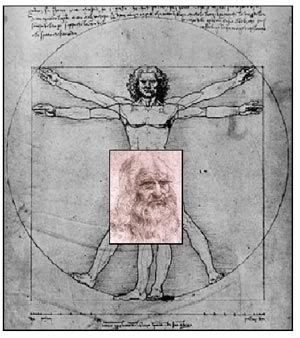
Friday, May 26, 2006
Sunday, May 21, 2006
Saturday, May 20, 2006
Even though I have not read the book or seen the film yet I have an increasingly emotional interest in the Da Vinci Code discussion because of my interest in Christianity and my recent studies in Gnosticism, the canonization process, Biblical criticism, and the various early Christian communities. During Easter I read Bart Ehrman's books on the early "lost" Christian communities and "the story behind who changed the Bible and why" and I am currently reading Elaine Pagels book "The Gnostic Gospels" for a second time. While I have no personal stake in the Gnostic tradition I am interested in the diversity of the early Christian communities because of the social implications for our own time. Also, I have enjoyed learning more about the movement in it's historical context which I think is often lost when people discuss the Gnostics. For many Christians the gnostics have become the poster children for heresy and anti-christianity which in unfortunate because from my perspective I think they were trying to live out their own faith in the context of some very difficult circumstances. Hans Jonas, a prominent historian of gnosticism suggests in his writings that "many people at the time felt profoundly alienated from the world in which they lived and longed for a miraculous salvation as an escape from the social constraints of political and social existence."....therefore.....according to Jonas they "constructed a worldview--a philosophy of pessimism about the world combined with an attempt at self-transcendence."....Professor R.M. Grant "has suggested that gnosticism emerged as a reaction to the shattering of traditional religious views ----Jewish and Christian ---after the Romans destroyed
Gnosticism has received more than it's fair share of criticism from certain Christian quarters over the years and it now appears that alot of that criticism in now being projected onto Dan Brown's book and the film. All the major Christian parachurch ministries are talking about the book/movie and websites and articles are popping up everywhere. Over the past couple of days I have visited some of the websites and read a few articles and I am taken back a bit regarding the misinformation and, imo, alarmist concerns over a book that is after all, only fiction. One writer of a popular Christian organization writes, "Brown opens his book by writing, "All descriptions of artwork, architecture, documents and secret rituals in this novel are accurate." By extension, then—despite his online disclaimer—he, his book and now his movie assert that the New Testament is not the "true" account of the life of Jesus. Rather, the Gnostic Gospels tell the true story.".....Really?....Is this what Brown is asserting? Perhaps it would be helpful to hear what Brown himself has to say about the matter. Brown had this to say in a recent interview,
While it seems that
the book's characters and their actions are obviously not real, the
artwork, architecture, documents, and secret rituals depicted in this
novel all exist (for example, Leonardo Da Vinci's paintings, the
Gnostic Gospels, Hieros Gamos, etc.). These real elements are
interpreted and debated by fictional characters. While it is my
belief that some of the theories discussed by these characters may
have merit, each individual reader must explore these characters'
viewpoints and come to his or her own interpretations. My hope in
writing this novel was that the story would serve as a catalyst and a
springboard for people to discuss the important topics of faith,
religion, and history.
From my vantage point it appears that Brown is "only" asserting that the gnostic documents exist but "is not" asserting a particular interpretation or theory. While it is true that the characters in the story have a particular opinion about such matters it is important to remember that the story and the characters are "only" fiction. Brown also had this to say.....
"Since the beginning of recorded time, history has been written by
the "winners" (those societies and belief systems that conquered and
survived). Despite an obvious bias in this accounting method, we
still measure the "historical accuracy" of a given concept by
examining how well it concurs with our existing historical record.
Many historians now believe (as do I) that in gauging the historical
accuracy of a given concept, we should first ask ourselves a far
deeper question: How historically accurate is history itself?"
Another critic of Brown's book had this to add, ""Do you realize that the Gnostics were not eyewitnesses? And did you know that the early church was aware of these teachings and refuted them? The New Testament has much more historical credibility."
Is this critic aware that the Gospels are also not eyewitness accounts but were written anonymously perhaps for the purpose of establishing authority in order that people might take seriously what they had to say? And, while the gnostic texts are not as old as the Gospels of Matthew, Mark, Luke, and John no one knows for sure when the gnostic texts were "originally" written and it is not too far fetched to question whether the originals might have been banished or cast into a lake of fire considering what many of the early church fathers had to say about the gnostics in their numerous attacks on the movement.
The same critic concluded with this statement, "many who read The Da Vinci Code are prone to believe it: Forget historical investigation; forget the need for consistency; forget the need for continuity with the Old Testament. It comes down to the desire to have a tolerant faith that lets us pick-and-choose our beliefs, cafeteria style.
If we bring this battle for the canon back to rationality, consistency and historical investigation, we have nothing to fear. We can't compete with people's desires, but we can show that all the hard evidence is on our side."
Really,.....how condescending and arrogant....So much for Christian humility.....So why all the effort to discredit and demonize a film/book that is only a work of fiction? Are people really that gullible, naive, and unable to sort through the facts for themselves? Apparently some people think so.......So why all the concern and apparent need by many to refute something that is fiction especially when you consider that critics of the Bible and traditional Christianity have been around forever and quite prominent today....I suspect it's the "popular appeal" of the Da Vinci Code that warrants such attention. Traditional/Conservative Christians don't have to seriously worry about the writings of the Jesus Seminar, left leaning, and secular critics because their books, articles and other means of communication are limited only to those who frequent the kind of places where their work is featured and since Christian Television, radio, and bookstores are a monopoly of like minded people one can go for years without thinking much about the type of questions that are raised by the likes of Crossan, Ehrman and others. But, pop culture is another matter. Lots of people go to films and later talk about what they have seen to their friends, relatives and colleagues....therefore.....While the Da Vinci Code is a work of fiction it's story is raising alot of questions and discussions for alot of folks regarding Christianity and apparently this concerns a significant number of Christians. Apparently Joseph Campbell was right....Myth is powerful.....





